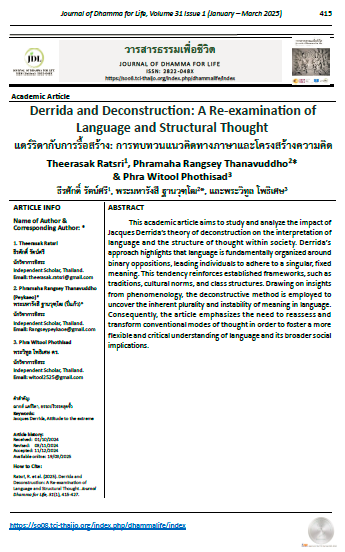Derrida and Deconstruction: A Re-examination of Language and Structural Thought
Main Article Content
Abstract
This academic article aims to study and analyze the impact of Jacques Derrida’s theory of deconstruction on the interpretation of language and the structure of thought within society. Derrida’s approach highlights that language is fundamentally organized around binary oppositions, leading individuals to adhere to a singular, fixed meaning. This tendency reinforces established frameworks, such as traditions,
cultural norms, and class structures. Drawing on insights from phenomenology,
the deconstructive method is employed to uncover the inherent plurality and instability of meaning in language. Consequently, the article emphasizes the need to reassess and transform conventional modes of thought in order to foster a more flexible and critical understanding of language and its broader social implications.


